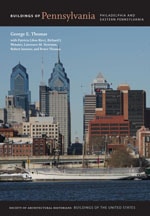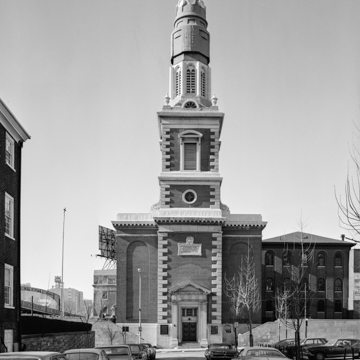Founded in 1796, St. Augustine's was the fourth Roman Catholic church in the city and was paid for by a lottery that drew support from President George Washington. Completed by 1800 and occupied by Augustinian monks from Ireland, the church served a congregation of Irish immigrants, among them Commodore John Barry and publisher Matthew Carey. It was destroyed by arson in the Know-Nothing riots of 1844 and rebuilt by LeBrun, whose design recalled its predecessor in its brick walls and Pennsylvania blue marble detail. A cupola added by Edwin Forrest Durang in 1867 was in the late Federal mode of the destroyed church, suggesting a continuing institutional memory. The present cupola is a modern re-creation in cast aluminum of the original, which was blown down in a wind storm in 1992. Durang also built the adjoining parochial school (1870).
You are here
St. Augustine's Roman Catholic Church
If SAH Archipedia has been useful to you, please consider supporting it.
SAH Archipedia tells the story of the United States through its buildings, landscapes, and cities. This freely available resource empowers the public with authoritative knowledge that deepens their understanding and appreciation of the built environment. But the Society of Architectural Historians, which created SAH Archipedia with University of Virginia Press, needs your support to maintain the high-caliber research, writing, photography, cartography, editing, design, and programming that make SAH Archipedia a trusted online resource available to all who value the history of place, heritage tourism, and learning.















